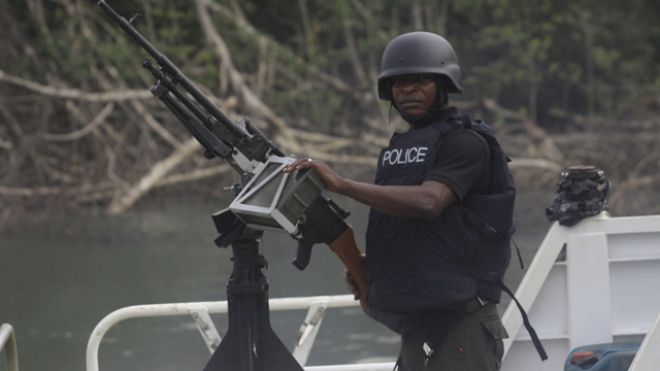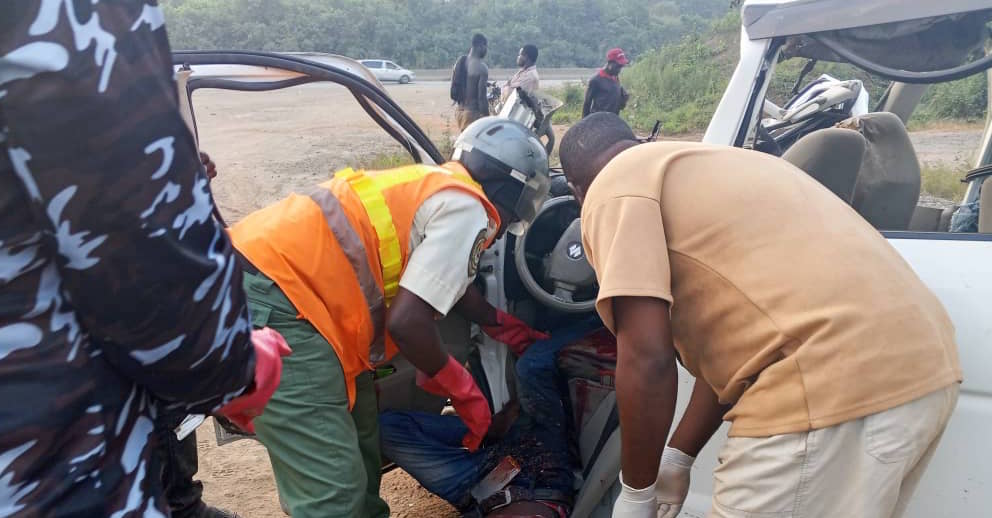Four people, including three children, were burnt beyond recognition, while 10 others sustained injuries after a commercial Hummer bus caught fire in Gwaram, Jigawa State.
Security and emergency sources told Zagazola Makama, a competent security pundit in the Northern region, that the incident occurred on February 22, 2025, at around 4:00 p.m., near the Government Girls Unity Secondary School, Gwaram.
The bus, a white Hummer with registration number ZAK 382 XA, was driven by Dalha Saleh, a 40-year-old resident of Galdimari Quarters, Saldigal Village, Zaki LGA, Bauchi State.
It was conveying 44 passengers—25 adults and 19 children—from Zaki LGA in Bauchi State to Rabadi Village when the fire broke out from the vehicle’s exhaust system.
According to sources, the fire ignited after a mattress tied to the back of the vehicle caught fire from the exhaust sparks.
The four victims, all from Saldigal Village, Zaki LGA, Bauchi State, were identified as Ziwaira Hassan; Fatima Hassan; Iyatale Hassan and Halima Muhammad (10 years, female).
Ten other passengers sustained varying degrees of burns and were rushed to Gwaram Cottage Hospital for treatment. The remaining passengers were rescued unhurt.
The sources said that the charred remains of the victims would be released to their families for burial after a medical examination.
The source hinted that the reckless overloading of commercial vehicles, particularly those transporting goods from Kano to Maiduguri, has become a serious safety and security concern.
Every day, buses and vans meant for passenger transport are stuffed with goods that should be carried by trailers, turning them into moving hazards on already dangerous highways.
Despite the presence of numerous security and road safety checkpoints, many of these vehicles pass through unchecked—not because they meet safety standards, but because they pay their way through.
These drivers mostly travel at night to evade strict checks from KAROTA in Kano-Jigawa and pass the night in Potiskum. They then proceed with their journey in the early morning hours. During that time, those responsible for enforcing compliance are primarily focused on collecting bribes, ensuring that no vehicle is stopped for any checks.
Various personnel at these checkpoints, instead of enforcing regulations, often turn a blind eye in exchange for bribes, allowing these overloaded vehicles to continue their journeys without scrutiny. Many of these vehicles exceed weight limits, causing faster deterioration of roads and bridges, which leads to costly repairs and more hazardous road conditions.
The Federal Road Safety Corps (FRSC), police, and other security agencies have been largely ineffective in stopping this dangerous trend. While FRSC officers are stationed at multiple checkpoints, many prefer to look the other way rather than enforce regulations.
Overloaded vehicles have poor stability, increased braking distance, and a higher likelihood of tyre blowouts, which can lead to deadly crashes. Incidents like the recent Jigawa fire disaster, where four passengers were burnt beyond recognition, are tragic reminders of this recklessness.
Drivers often claim that they overload their vehicles to cover the costs incurred from bribes paid to security agencies at various checkpoints.






